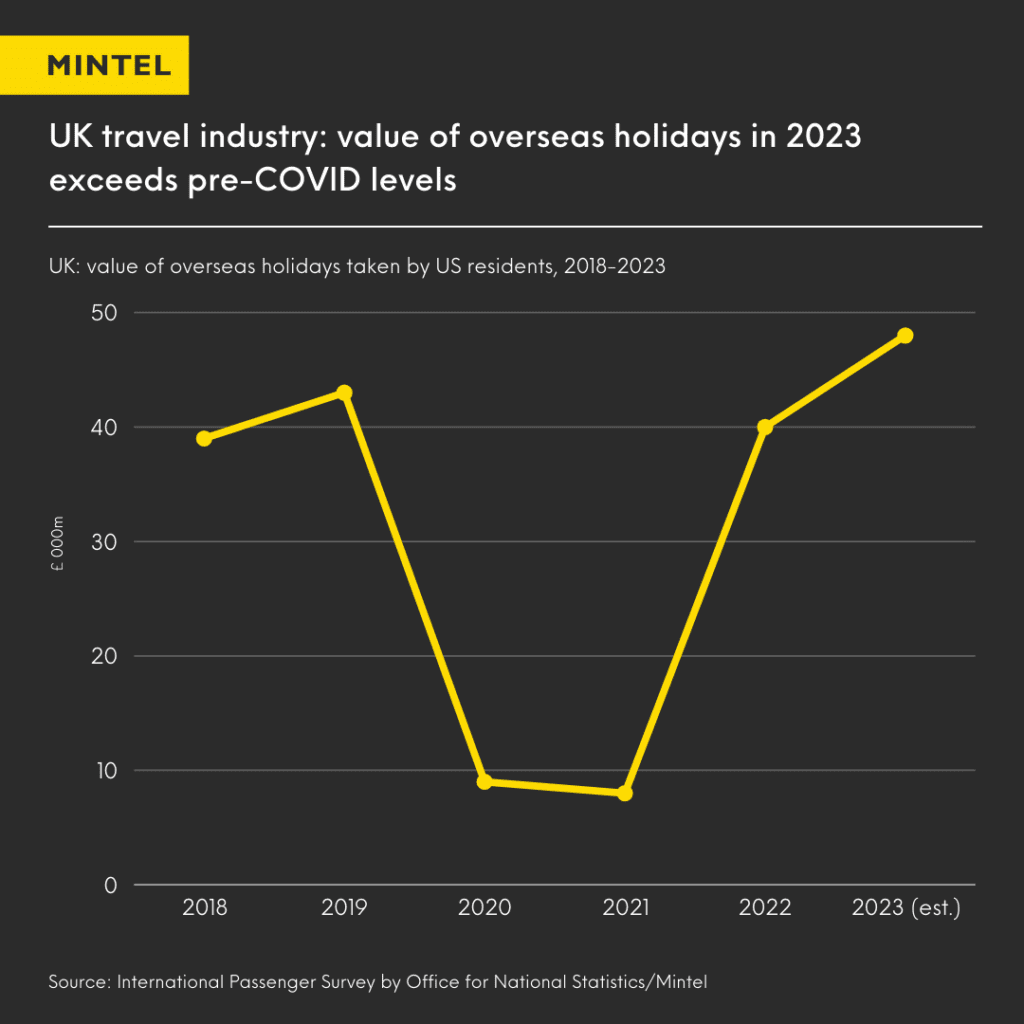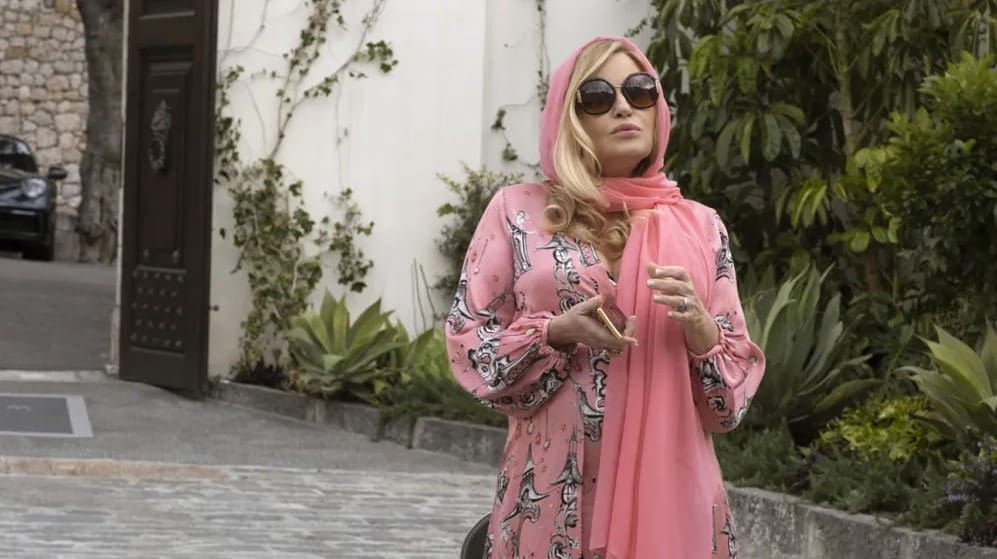Following the lifting of pandemic travel restrictions, the holidays and travel industry experienced a significant boom. In October 2022, Mintel’s consumer research found that UK consumers’ intentions to travel abroad had almost recovered to pre-pandemic levels. Much of this consumer demand for holidays was put down to ‘revenge travel’, a cultural phenomenon in which consumers were making up for lost time due to the pandemic by travelling and experiencing more. Mintel’s market analysis suggests that revenge travel may well be over, but the desire for holidays has not abated. Although the threat of COVID-19 impacting travel has more or less subsided, there are still factors that affect consumers’ demand for travel and their approaches towards booking holidays. The rising cost of living and sustainability concerns have been having an impact on the market for several years now.

Even before the pandemic or rising sustainability concerns, there have always been generational differences in approaches to travel, affecting most aspects of the holiday experience, from booking processes to preferred payment methods. These differences have become more pronounced recently for a number of reasons; technology has revolutionised the holiday industry, particularly the booking and planning process, and the ongoing cost of living crisis has disproportionately impacted the younger Gen Z and Millennials generations. In this article, Mintel looks at the travel trends popular with each generation, and what brands can do to engage with the different consumer groups.
What are the different generations?
Mintel defines generations as:
| Baby Boomers | Born 1946-1964, in 2024, Baby Boomers are between the ages of 59 and 78. |
| Generation X | Born 1965-1979, in 2024, Gen Xers are between the ages of 44 and 59. |
| Millennials | Born 1980-1996, in 2024, Millennials are between the ages of 27 and 44. |
| Generation Z | Born 1997-2010, in 2024, Gen Z are between the ages of 13 and 27. |
Baby Boomer Travel Trends
When it comes to holidays, Baby Boomers embrace the familiar. This is reflected in Mintel’s consumer research, which found that in 2024, almost half of US baby boomers plan to travel to a destination they had previously visited. This preference for the familiar is also reflected in other aspects of the travel industry. Across generations, the holiday booking process is primarily done online, however, Baby Boomers are more reluctant to use their smartphones to book a holiday than younger generations, with only a marginal amount of Baby Boomers in Germany willing to do so. Moreover, Baby Boomers in the US are not comfortable with the involvement of AI in their travel planning and are likely to be more receptive to using travel advisors or agents. Businesses can appeal to Baby Boomers with the human touch, or take a leaf out of Vrbo’s book, and actively respond to concerns about AI in advertising campaigns.
Despite a general trend towards card payments when abroad, cash remains a significant part of the travel experience for Baby Boomers. In the UK, the generation shows a strong preference for this, which is rooted in their previous experiences and the comfort and familiarity that comes with using cash. For many older consumers, exchanging currency is a habitual part of their travel routine. Nine in ten UK travellers aged 65 and over used cash abroad in the last 12 months. For travel money providers, understanding the preferences of Baby Boomers is important. Providers should ensure that they are offering services that cater to the convenience and familiarity that Baby Boomers seek.
Gen X Travel Trends
Gen X is entering a stage of life where they are likely to have grown-up children and some Gen Xers are approaching retirement age. As a result, the Gen X traveller is more inclined towards family trips. However, where Baby Boomers are fond of the familiar, Gen X are interested in new experiences, even with the family in tow. Family trips with older children and a desire to see new destinations mean that marketers can target them with more adventurous activities and unfamiliar locales.
On the whole, Gen X are quite price-sensitive when planning holidays. They value quality and durability, indicating that they may be drawn to travel options that promise long-lasting memories or experiences that are perceived as high-quality. This provides an opportunity for the wellness travel sector. Gen X has shown nearly as much interest in wellness holidays as Gen Z, but their engagement with these types of holidays is much lower, with only a quarter having participated in wellness travel. There is a significant opportunity for travel brands to engage Gen X by promoting a broader image of wellness holidays, focusing on activities such as mindfulness exercises that can have lasting effects and provide value on a deeper level.
Millennial Travel Trends
Millennial travellers are the first generation to be heavily influenced by social media when it comes to travel decisions. Mintel’s market analysis indicates that as a consumer group, Millennials are highly receptive to social media regarding travel inspiration and planning. Four in ten UK millennials who follow or frequently view social media personalities view travel content, suggesting that travel brands should consider partnering with travel influencers to reach this demographic.
Some Millennials are keen to seek out luxury when they travel, however many have grown more budget-conscious in the ongoing cost of living crisis. Mintel’s market research found that UK Millennials are the most likely generation to set a spending budget for their next holiday abroad and monitor exchange rates before a holiday abroad. This highlights that Millennials’ approach to holiday planning has been impacted, with many looking for ways to limit costs, such as booking in advance, travelling outside the peak season, and opting for lower-cost accommodation.
Like Gen X, Millennials seek unique experiences when travelling, and are embracing the concept of solo travel more than any other generation. In fact, almost half of US solo travellers are Millennials, who are primarily drawn to solo holidays by a sense of freedom and a desire for self-discovery. However, not all Millennials are keen to travel alone. Naturally, Millennials with families are interested in multigenerational travel, much like their Gen X counterparts they value shared experiences with family and spending quality time together.
Gen Z Travel Trends
As digital natives, three-quarters of Gen Zs say social media influences their holiday ideas, but the influence of technology and media doesn’t stop there. The popularity of TV shows and films available on streaming platforms has led to a resurgence of ‘set-jetting’, where people travel to locations featured in these media. This trend has been driven by Gen Z’s favourite shows like Netflix’s “Emily in Paris” and HBO’s “The White Lotus,” which have sparked wanderlust among viewers.

Social media does not just affect where Gen Zers are going, it may also determine how they’re getting there, mainly by influencing their sustainability choices. Sustainable travel is not a top priority for most travellers. Across all generations, cost is seen as far more important than sustainability amidst the current economic climate. Nevertheless, nearly half of Gen Zs in the UK say they are encouraged to travel more sustainably by social media influencers. This interest in sustainable travel practices is mirrored across Europe, with almost a quarter of German Gen Zs paying for carbon offsetting against a flight (vs only 5% of Baby Boomers).
Looking Ahead With Mintel
The sustained popularity of social media in the holiday planning process provides travel brands with key opportunities to directly engage with and appeal to younger generations via social media campaigns. Yet, brands should also be wary of neglecting more traditional forms of advertising to continue appealing to older generations, who prefer traditional media for travel research and a human touch.
Furthermore, with the rise in popularity of multigenerational travel, it is vital for travel brands and businesses to make travel planning easier and accessible, as well as provide experiences that are appropriate for all ages so all generations can enjoy holidays together.
Align with the latest trends in consumer behaviour by exploring Mintel’s extensive Holidays and Travel Market Research.
Subscribe to Mintel’s newsletter, Spotlight, to get free content and insights delivered directly to your inbox.






































